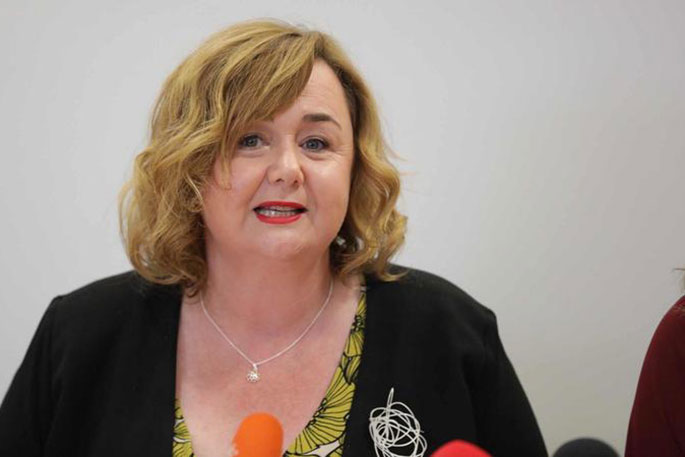The Government will progress to the next stage of the NZ Battery Project, looking at the viability of pumped hydro as well as an alternative, multi-technology approach as part of the Government's long term-plan to build a resilient, affordable, secure and decarbonised energy system in New Zealand, Minister of Energy and Resources Megan Woods says.
The NZ Battery Project was established in late 2020 to find innovative solutions to the ‘dry year problem', when hydro-electricity lakes run low, leading to the burning of more fossil fuels to cover the electricity shortfall, and often higher power bills.
'Until we address the dry year problem, we will continue to rely on burning expensive and polluting fossil fuels to produce our electricity. That's bad for the climate and our power bills,” says Megan Woods.
'Pumped hydro is an ingenious way of storing energy in a big reservoir, which is released into a lower reservoir when more power is needed, like a giant battery. A dry year solution would be a huge step towards our mission to move towards more renewable energy generation and power more of New Zealand in New Zealand.
'The Government has also agreed to continue looking at alternatives to the scheme including a combination of comparator technologies and scoping a possible smaller pumped hydro scheme in the central North Island, subject to agreement with iwi,” Megan Woods said.
Biomass, flexible geothermal energy, and hydrogen have been identified as the possible alternatives to pumped hydro, as they have the most potential collectively to store enough energy to help solve the dy year problem.
Phase 1 investigations show a pumped hydro scheme at Lake Onslow would take approximately seven to nine years to build, with an estimated building cost of $15.7 billion.
In comparison, initial estimates for the capital element of the portfolio option are about $13.5 billion, but with significantly higher ongoing operating costs.
'We always knew that any dry year battery storage solution will require significant investment, that's why it's important we thoroughly test these scenarios and get it right.
'Now some more detailed work has been done we have a much clearer picture of the projected costs which differ significantly from the 2006 high level costings. The next phase will be to dig even further before we look at spending such a huge amount of money, but one thing we do know is that doing nothing to plan for climate change is not an option.
'We have a choice to take a short term view and continue to pay for the increasing costs related to climate change or to be bold and take a long term view, for the good of the country.
'But there's still a long way to go. A lot more work is required to understand the full environmental, cultural, social and commercial impacts, as well as the engineering requirements. We will continue to work with our key stakeholders including mana whenua, and landowners, as well the technology experts,” said Megan Woods.
A detailed business case is expected to be developed by the end of 2024, followed by a final investment decision, which is expected to take a further two years.



5 comments
HOUSING MINISTER
Posted on 17-03-2023 20:57 | By LadySin
How about start with housing, love? We can do the "nice to haves" once everyone has a roof over their heads. Get back to basics, Minister.
Power price versus play for green vote
Posted on 18-03-2023 07:25 | By Kancho
Well these methods have been tried overseas with limited effect and as yet no efficient cost effective solutions. Certainly going down this path signals a massive increase in power prices. This is a play for the green vote in election year. The government has spent hugely on EVs etc that hasn't changed a thing as emissions continue to rise with population and more cars every year. Our power grid like other infrastructure struggles . Pumping water and geothermal expansion msy help a little bit isn't there and still increases costs.
Your a joke
Posted on 18-03-2023 09:52 | By an_alias
This will blow out to be an absolute farce, how many houses did you build ? A waste of money for a dream that doesnt exist. Watch your taxes and costs go through the roof people
BS articles...........
Posted on 18-03-2023 22:01 | By groutby
....like this from the minister takes your mind off the 'real' current other BS issues doesn't it?...and that's the plan.....they can't do small promises let alone big ones!....which consultants are coining this one then?
Experts say
Posted on 27-03-2023 08:59 | By Kancho
Batteries are very poor inefficient ways of storing power. We all use hundreds of batteries with there chemicals that never get recycled so tons of nasty and rare chemicals in the dump. Meanwhile we dig up huge quantities in other people's countries in appalling conditions to make EV batteries that in turn will be dumped as very heavy and dangerous. So why are we not recycling chemicals rare metals etc batteries at all . Because we haven't the technology or because it's expensive . So never mind let's just carry on as we can't afford it.
Leave a Comment
You must be logged in to make a comment.